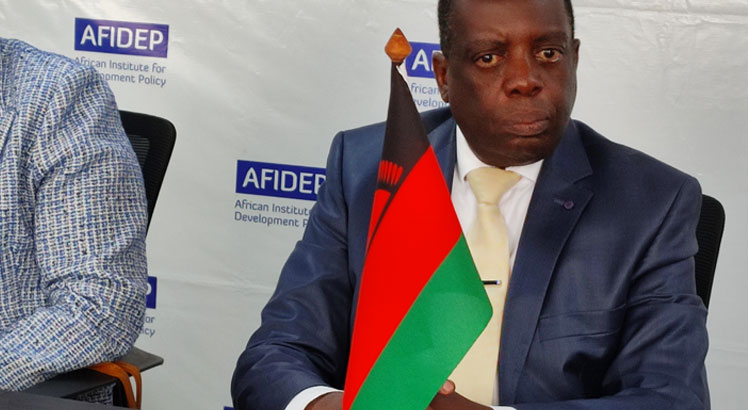OPC accused of selective justice
The Office of the President and Cabinet (OPC) faces accusations of selective justice for not acting on Principal Secretary (PS) for Economic Planning and Development Patrick Zimpita currently facing criminal charges bordering on abuse of office.
The accusations come in the wake of Malawi Public Service Regulations which stipulate that any public officer answering criminal charges should be placed under interdiction.
The Anti-Corruption Bureau (ACB) in May this year arrested and charged Zimpita, while he was PS for Transport and Public Works, for alleged abuse of public office in relation to the award of a contract to Mota-Engil for the rehabilitation of the railway line from Marka to Bangula in Nsanje in 2021.
Zimpita is still discarging duties of his office and was last week part of a press conference in Lilongwe jointly held with the United Nations Population Fund (UNFPA) marking the World Population Day on July 11.
Ironically, based on Malawi Public Service Regulations, OPC previously interdicted other public officers, including former Ministry of Lands PS Reyneck Matemba who is facing corruption-related charges in relation to United Kingdom-based businessperson Zuneth Sattar, who is accused of bribing multiple public officers to influence the award of contracts to his firms.

Earlier this year, the OPC was also in the limelight over a botched interdiction of ACB director general Martha Chizuma over a leaked audio in which she allegedly discussed sensitive official information with a third party.
In the wake of the developments, governance commentators have accused OPC of employing selective justice, saying it is questionable that some public officers have been interdicted on the basis of criminal charges while others, such as Zimpita, are still in office.
Centre for Social Accountability and Transparency executive director Willie Kambwandira said OPC’s silence sends a wrong message on government’s commitment to good governance.
He said: “This is selective application of the law and it tells us that we have a section of people, especially those connected to power, that are being protected from facing the law.
“It also confirms that the fight against corruption is merely rhetoric and poetic. If the President is serious about fighting corruption, the PS must be relieved of his duties until he is cleared by the court.”
In a separate interview, Youth and Society executive director Charles Kajoloweka asked the Secretary to the President and Cabinet Colleen Zamba to account for this, saying it smacks of “failure of duty and selective enforcement of regulations”.
But in an interview yesterday, OPC spokesperson Robert Kalindiza said the OPC is aware of the issue and processes are underway. However, he could not elaborate on the processes.
“OPC is aware of what you are talking about, and processes are underway, but it is too early to divulge the outcome,” he said.
In a statement issued at the time of the arrest, the ACB said its investigations had established that in 2021, Zimpita abused his office by instructing an officer in his ministry to draft and advertise a notification of intention to award contract to Mota-Engil without the approval of the Government Contracting Unit.
Regulation 40(1) of the Public Service Commission states that where an order of interdiction is made, the concerned officer “shall cease to exercise any such powers or functions, shall not leave Malawi without the written permission of his responsible officer”.
This provision further states that “(a) where misappropriation of public funds is suspected, no salary (b) where it is suspected that the officer obtained his appointment by means of false representation, no salary (c) in any other case, half salary, or, if the commission so directs, no salary or such fraction of the officer’s salary as it may specify”.





